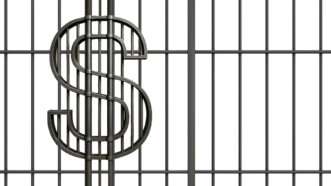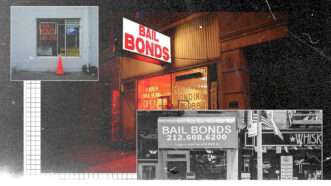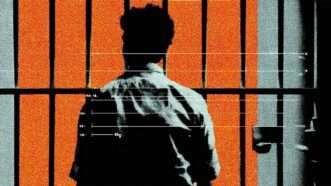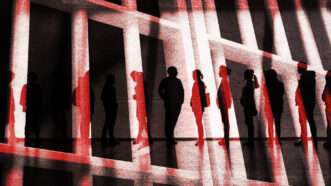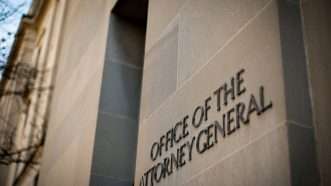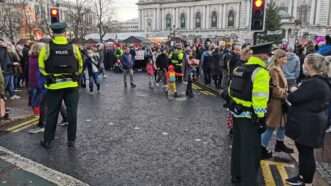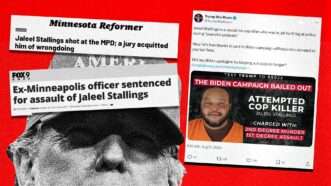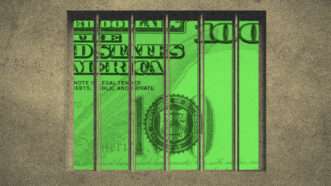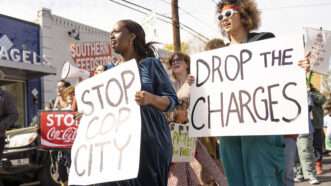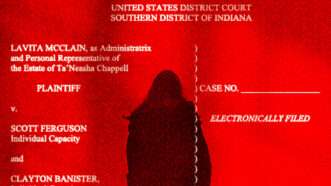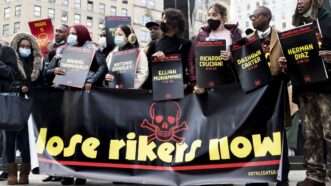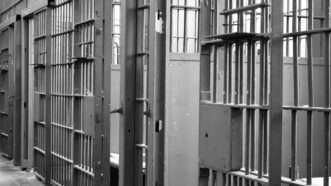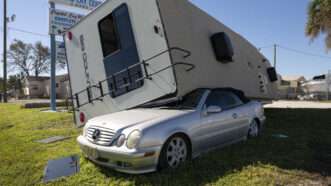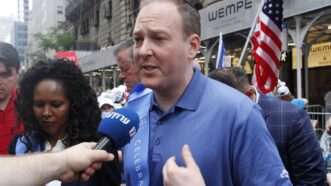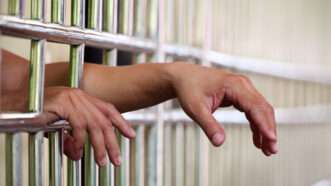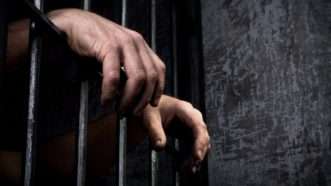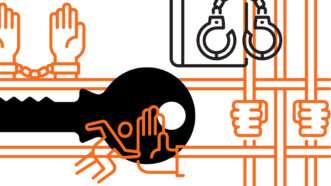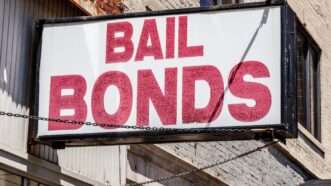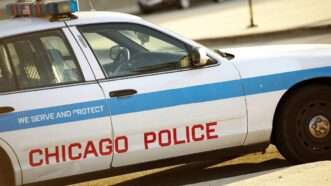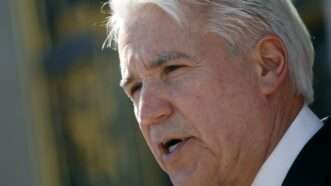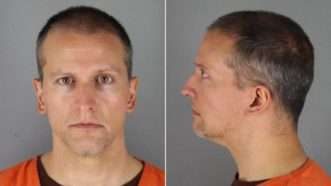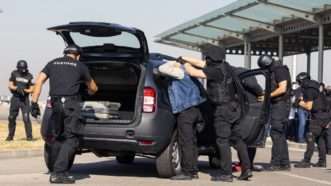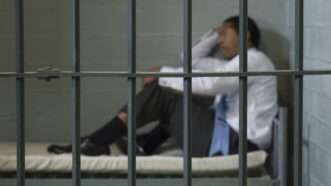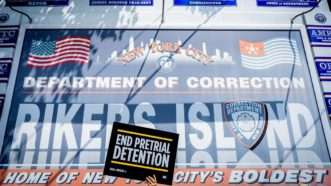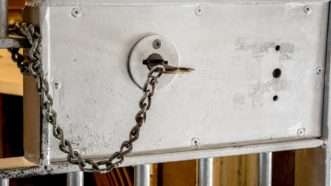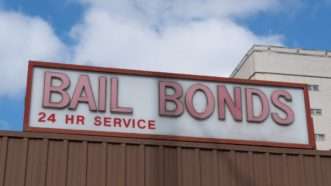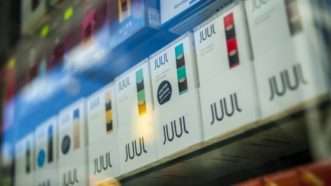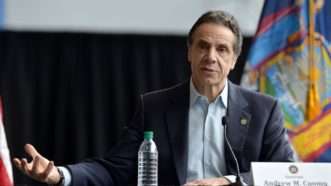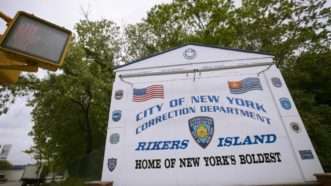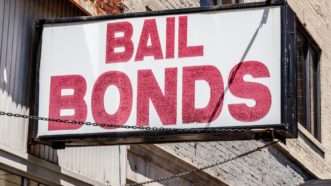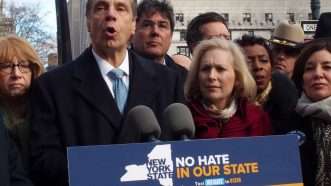Bail
Bail Reform Faces Backlash as Policymakers Move To Require Cash Bond for Pre-Trial Defendants
Critics of cash bail say it creates a two-tiered justice system: Those who can pay maintain their freedom, while those unable to pay remain behind bars.
Trump's Unconstitutional Plan to Penalize States that Allow Cashless Bail
His executive order directs the Justice Department to deny federal funds to jurisdictions that use cashless bail for suspects for many types of crimes. The plan is another assault on federalism and separation of powers.
Trump Directs DOJ To Penalize States and Cities That Use Cashless Bail
As part of his response to the alleged crime emergencies taking place nationwide, Trump signed an executive order restricting federal funding from jurisdictions with cashless bail policies.
Georgia Man Who Spent 6 Weeks in Jail on a Kidnapping Charge Says He Was Helping a Falling Child
Mahendra Patel was charged with battery, assault, and attempted kidnapping. He was granted bond.
The Laken Riley Act Reminds Us: If a Law Is Named After Someone, It's Probably Bad
Riley's murder was an atrocity. But the law bearing her name is a grab bag of authoritarian policies that have little to do with her death.
Justice Department Says a Small Mississippi Town Ran a Dickensian Debtor's Prison
Federal investigators say police in Lexington, Mississippi, used illegal searches, excessive force, and kept residents in jail when they couldn't pay off old fines.
The Trump Campaign Won't Stop Lying About a Minnesota Man Acquitted of Shooting at Police
Jaleel Stallings became an attack ad for Republicans. What they don't mention is that he was acquitted, and a police officer pleaded guilty to assaulting him.
Georgia Bill Would Hobble Bail Funds Even as It Expands Cash Bail
By definition, people assigned bail have been judged safe to release into the general population. Requiring them to post cash bail is needlessly punitive.
Georgia Arrests 'Cop City' Bail Fund Organizers for Fraud, Money Laundering
As with other cases in recent months, Georgia law enforcement has used specious classifications to charge nonviolent protesters with domestic terrorism.
She Told Jail Employees That She Was 'Throwing Up Blood.' They Ignored Her. The Next Day, She Was Dead.
"They had a duty to protect her," says Ta'Neasha Chappell's sister. "She was not attended to because she was a Black woman and they didn't feel like she was worth getting any attention."
Judge Rules Illinois' Elimination of Cash Bail Unconstitutional
The governor and attorney general say they’ll appeal to the state Supreme Court.
Rikers Island Sees 19th Death This Year After Judge Gives Leaders More Time To Fix Its Messes
Somehow deaths have climbed even though the prison population has dropped.
Tough-on-Crime Cash Bail Initiatives Win in Ohio and Alabama
The debate over bail has become a polarizing flash point. But as usual, the answer is more nuanced than either Republicans or Democrats would have their bases believe.
Is a War on Policing Increasing Crime? Q&A With Rafael Mangual
In Criminal (In)Justice, the Manhattan Institute scholar argues that most reforms favored by social justice activists—and many libertarians—make life worse for communities of color.
Is a War on Policing Increasing Crime? Q&A with Rafael Mangual
In Criminal (In)Justice, the Manhattan Institute scholar argues that most reforms favored by social justice activists—and many libertarians—make life worse for communities of color.
Storms and Reforms
Plus: The editors unpack a philosophical question from a listener concerning foreign policy.
Manhattan D.A. To Prosecute Domestic Violence Victim for Murder After Saying It Wasn't Murder
Alvin Bragg campaigned on Tracy McCarter’s innocence. Once in office, that was apparently less politically expedient.
Memphis Voters Dump Harsh D.A. in Favor of Criminal Justice Reformer
Let’s perhaps stop trying to tease national trends out of the complexities of local public safety issues.
Don't Blame New York's Bail Reforms for Quick Release of Congressman's Attacker
One of the candidate’s own supporters is responsible for the defendant’s release. And it may have been the right decision.
Lawsuit Alleges that Judges Delegate Pretrial Release Decisions to County Officials
The claims come in a lawsuit against Prince George's County (Md.).
Manhattan DA Drops Murder Charge Against Jose Alba. It Never Should Have Been Filed.
The initial decision to pursue prosecution runs contrary to the campaign promises of Alvin Bragg, who claims to understand that, so often, the process is the punishment.
New Footage Shows Bodega Clerk Trying To Avoid Deadly Fight. Will Manhattan D.A. Drop the Murder Charges?
Alvin Bragg campaigned on "ending mass incarceration." But that promise apparently does not apply to Jose Alba.
New York Dems Want To Roll Back Bail Reforms. Not So Fast, Says NYC Comptroller.
Bail reforms did not lead to higher crime, and in fact should be applied more uniformly, report finds.
Tackling Mass Incarceration Requires More Than Freeing Nonviolent Drug Offenders
A new report emphasizes that the U.S. would still have a very high incarceration rate even if all drug war prisoners were released.
Conservatives Should Resist the Urge To Blame Bail Reform for the Waukesha Parade Deaths
The D.A.'s office has said that Darrell Brooks bail was set "inappropriately low."
Cashed Out
What happens when a community bail fund stops paying bail and starts trying to abolish it?
Texas Senate Passes Bill To Restrict Charitable Bail Organizations
The bill would prohibit charitable organizations from paying bail for anyone who had committed "an offense involving violence" at any time in the past 10 years.
Lil Nas X Uses Chart-Topping 'Industry Baby' To Stump for Bail Reform
Around half a million Americans are stuck at any given time in pretrial detention, often because they can’t afford freedom.
California Supreme Court Rules It's Unconstitutional To Imprison People Just Because They Can't Afford Bail
Pretrial detention is supposed to be for people deemed dangerous, not people without money.
Massive Illinois Police Reform Bill Ends Cash Bail, Limits Deadly Force, Mandates Body Cameras, and Makes It Easier To Dump Crooked Cops
Unfortunately, qualified immunity remains intact.
California Voters Declined To End Cash Bail. L.A.'s New District Attorney Says He'll Do It Anyway.
Cash bail is as unjust as it is arbitrary.
Voters Used Ballot Initiatives To Defy Power-Mad Politicians
Tax hikes? Drug wars? Racial Preferences? Not today.
The Fight Over Derek Chauvin's $1 Million Bail Shows the System Is Irrational and Broken
The ex-cop charged with killing George Floyd should be allowed to await his trial in safety. That should be the standard for everybody.
A New Bill Would Stop the Feds From Tossing Drug Defendants in Prison Before They're Convicted
A proposed bipartisan change in pretrial detention rules could free thousands annually.
California Voters Will Decide Whether They Want To End Cash Bail Once and for All
Bail bond companies fight to protect their industry, while some civil rights groups worry the reforms won't actually reduce pretrial detentions.
New York Is Having a Violent Summer, But It's Not Because of Bail Reform
The NYPD is still blaming jail releases, but the data simply doesn’t back that claim up.
Meet the Philly Judge Standing in the Way of Efforts To Stop Coronavirus Spread in Jails
Judge Anne Marie Coyle has rejected every emergency attempt to reduce prison populations.
California Judges Set Bail at $0 for Misdemeanors, Low-Level Felonies Amid Coronavirus Pandemic
New emergency rules attempt to slow down justice system to keep people apart.
New York's New Budget: No Legal Weed, No Fracking, No Flavored Vapes, No Police Transparency. But You Get E-scooters!
If only everybody weren’t stuck in their homes.
New York May Re-Reform Its Bail System, and Criminal Justice Activists Aren't Happy
Judges would be given additional leeway to order pretrial detentions.
The Prison Coronavirus Disaster Everybody Warned About Is Unfolding in New York City
Jail officials urge more and faster releases as the virus spreads between staff and inmates.
Chicago Judge Says His Bail Reforms Were a Success. But Independent Reviews Show Flaws and More Crimes.
Did Cook County overdo it and let too many dangerous defendants free?
Lawsuit Targets Nashville Courts for Treating Bail Money Like Down Payments for Fines, Fees
ACLU argues the practice violates the Eighth Amendment.
The Justice Department Wades Into New York Bail Reform Fight With Federal Hate Crime Charges Over Slapping
Police and prosecutors want to maintain a system that punishes poor people before they’re ever convicted.
Opponents of New York Bail Reform Seize on Anti-Semitic Attacks in Order To Sabotage Important Changes
Jewish criminal justice groups are not having it.

